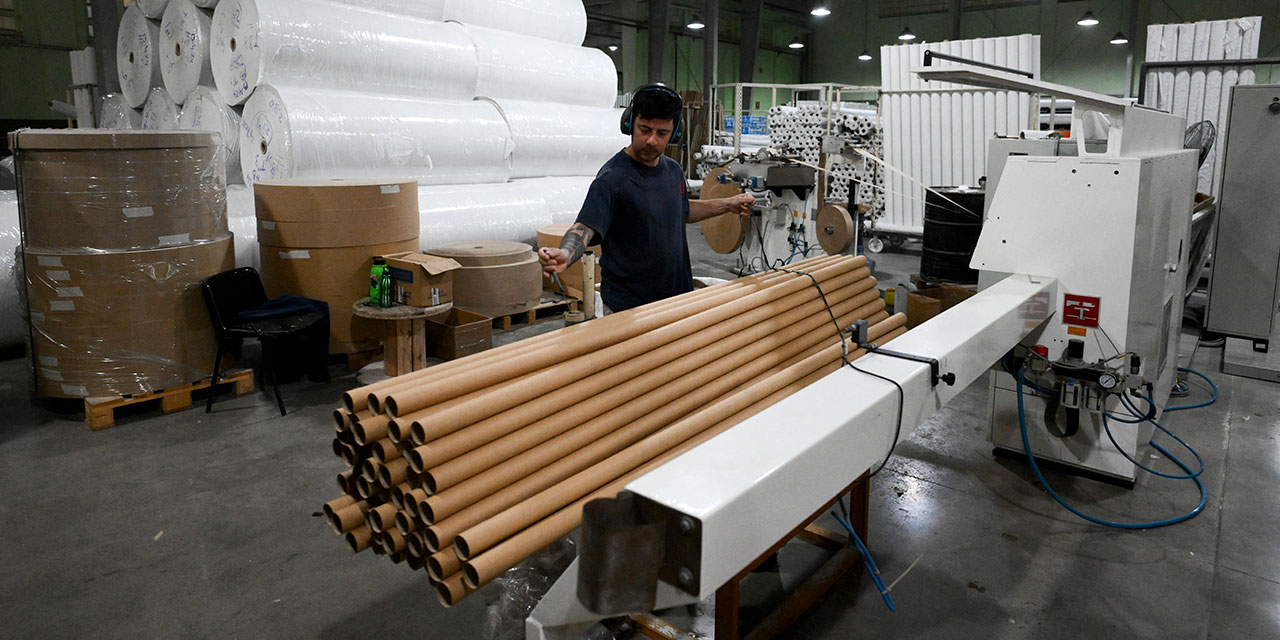
Economists often cite Argentina as a model for how not to run an economy. From 2007 to 2015, President Cristina Fernández de Kirchner—widow of former President Nestor Kirchner—tried to cut Argentina off from the world and force the nation to manufacture everything at home. The result: factories producing expensive products that no one wanted.
Yet just as President Javier Milei is dismantling these policies, politicians in the United States are erecting new obstacles to trade. If President Trump’s recent tariffs are a negotiating tool to lower other nation’s trade barriers, they could boost American industry. But the longer the tariffs stay in place, the more likely they will turn America’s factories into useless relics like Argentina’s.
Finally, a reason to check your email.
Sign up for our free newsletter today.
Argentina’s protectionist policies date back at least to the Great Depression. But during her tenure, President Kirchner imposed high new tariffs, required importers to obtain licenses, and subsidized domestic industry in hopes of restoring manufacturing. In 2012, the World Bank reportedly found that Argentina was the “world’s most protectionist country.” The year before, a New York Times op-ed columnist celebrated the country’s “turnaround,” arguing that it was achieved by “keeping foreign imports expensive” and using tariff money to “pay for a New Deal-like public works binge.”
The reality was different. Kirchner’s high trade barriers sparked complaints from some 40 other countries. China and Brazil imposed retaliatory measures blocking Argentinian exports of soybean oil and cars, respectively. She managed to turn a trade surplus when she entered office into a deficit by the time she left.
Her policies repeatedly failed to revive the industries that she sought to protect. In 2011, Kirchner effectively banned the import of many electronics, requiring that they be made at home. Apple didn’t comply, meaning that iPhones disappeared from Argentina’s stores. BlackBerry struck a deal with the government to produce phones in a new factory in Tierra del Fuego, a remote Argentine island chain. As National Public Radio reported, Kirchner once held up a BlackBerry before a cheering throng, boasting that it had been made in Argentina. Two years later, however, the expensive factory stopped producing BlackBerry devices after it couldn’t compete with newer and cheaper phones snuck through customs. The Argentinian vice president got into trouble when he tweeted about the need to build up local industry . . . using his iPhone.
Under President Kirchner, Argentina adopted a policy aimed at ensuring balanced trade with every country. Foreign companies that wanted to sell goods in Argentina were required to match the value of their exports with equivalent imports of Argentine products. To keep selling cars to Argentinians, for example, companies like Porsche, BMW, and Mitsubishi began importing Argentinian olives, rice, and peanuts. Foreign firms had to spend big to get into the agricultural resale game—an arrangement that helped nearly double the price of cars.
Insulating Argentinian industries from international competition did not make them more competitive; it made them incapable of competing. The Buenos Aires Times recently wrote about “spoiled cry-baby businessmen all too used to selling shoddy goods at stratospheric prices to captive markets.” Industries moved backward as they no longer faced competition from tougher businesses abroad. They became even less efficient by relying on other coddled domestic industries for intermediate and capital goods, such as steel or machinery. The nation’s efforts at encouraging domestic car production slowed because factories had trouble obtaining necessary parts at home. By the end of Kirchner’s tenure, about two-thirds of Argentinian imports were for such intermediate and capital goods—so trade restrictions had the effect of stymieing new manufacturing.
Ultimately, Argentina learned that economic isolationism is counterproductive. After President Milei began to dismantle many of the country’s protectionist measures last year, imports of capital goods surged, which helped exports soar as well. By moving away from protectionism, Milei delivered a record trade surplus in his first year in office.
American industry also depends on international trade to thrive. About half of our imports are intermediate and capital goods used in domestic production. The more the United States cuts itself off from the world’s best suppliers—and best competitors—the weaker our industries will become.
Other countries haven’t always played fair with America, and the threat of tariffs can be useful leverage to bring them to the negotiating table and reduce trade barriers. But the longer the U.S. shelters its industries behind tariffs, the harder it will be for them to stay competitive. Argentina learned that lesson the hard way.
Photo by LUIS ROBAYO/AFP via Getty Images
City Journal is a publication of the Manhattan Institute for Policy Research (MI), a leading free-market think tank. Are you interested in supporting the magazine? As a 501(c)(3) nonprofit, donations in support of MI and City Journal are fully tax-deductible as provided by law (EIN #13-2912529).
Source link















